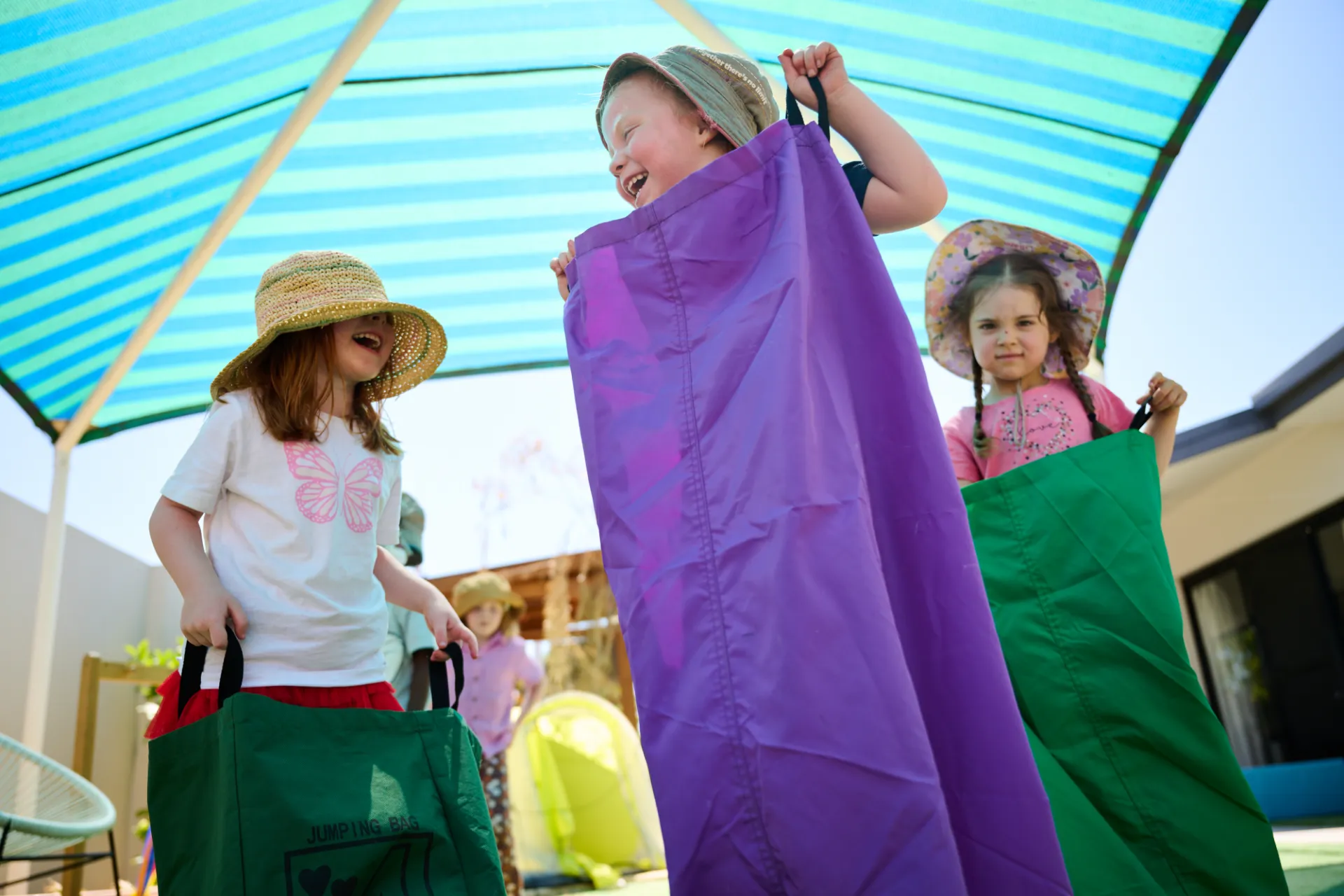More than 80,000 Australian children are expected to benefit as 700 childcare centres across the country trial a new program aimed at boosting declining physical activity levels.
Australia is currently sitting on a D- for children’s physical activity – a statistic that hasn’t changed since 2015.
The Australian 24-Hour Movement Guidelines for the Early Years state children aged 3–5 years should be getting three or more hours of physical activity per day, including 60 minutes of energetic play, but only one in ten young children are achieving this.
The Telethon Kids Institute-developed Play Active program – backed by 10 years of research and co-created with the early childhood education and care (ECEC) sector – aims to reverse the trend by helping early childhood educators to support children to be more active while in childcare.
The program, modelled on Play Active partner Cancer Council WA’s SunSmart program for childcare centres, provides a service-tailored physical activity policy, free professional development, and resources and tips on how to build more opportunities for energetic play into the day.
Professor Christian – also a National Heart Foundation Fellow and Professor with the School of Population and Global Health at The University of Western Australia – said the early years were a critical period for promoting physical activity, with childcare centres providing the ideal setting for targeting strategies aimed at increasing levels of activity in children.
“Given young children spend a lot of time in childcare, there is a huge opportunity here to increase their physical activity levels, in particular energetic play that gets them huffing and puffing,” Professor Christian said.
“Play Active is all about ensuring kids get those vital bursts of ‘huff and puff’ play throughout the day, every day.”
Professor Christian said the team’s research had shown early childhood educators were eager for information about how to help young kids be more active.
“Nutrition, sleep and sun protection policies are required in national ECEC regulations but there is no guidance around how much physical activity, sedentary and screen time children should have while in care,” she said.
“Play Active provides that guidance, training and support.”
The program, previously trialled in a successful pilot study with 81 Perth centres, is being rolled out nationally with support from the Federal Government’s Medical Research Future Fund (MRFF). Added support from the WA Government’s health promotion agency, Healthway, will ensure equitable access to Play Active among priority populations throughout WA.
The national rollout will start in Queensland and South Australia, with Play Active aiming to reach hundreds of childcare centres across all states and territories over the next four years.
Play Active, developed in partnership with leading national and international research institutions, has partnered with a range of Australian ECEC and other organisations and service providers to undertake the trial.
As the trial progresses, the research team will evaluate how well Play Active is implemented across different states and territories, and the longer term effectiveness of the program for increasing young children’s physical activity.
“Evidence from this trial will inform an Australia-wide delivery model that we hope will lead to positive change in addressing active-play based learning long term,” Professor Christian said.
ECEC centres keen to learn more or be part of the program are invited to sign up at playactive.org.au.

